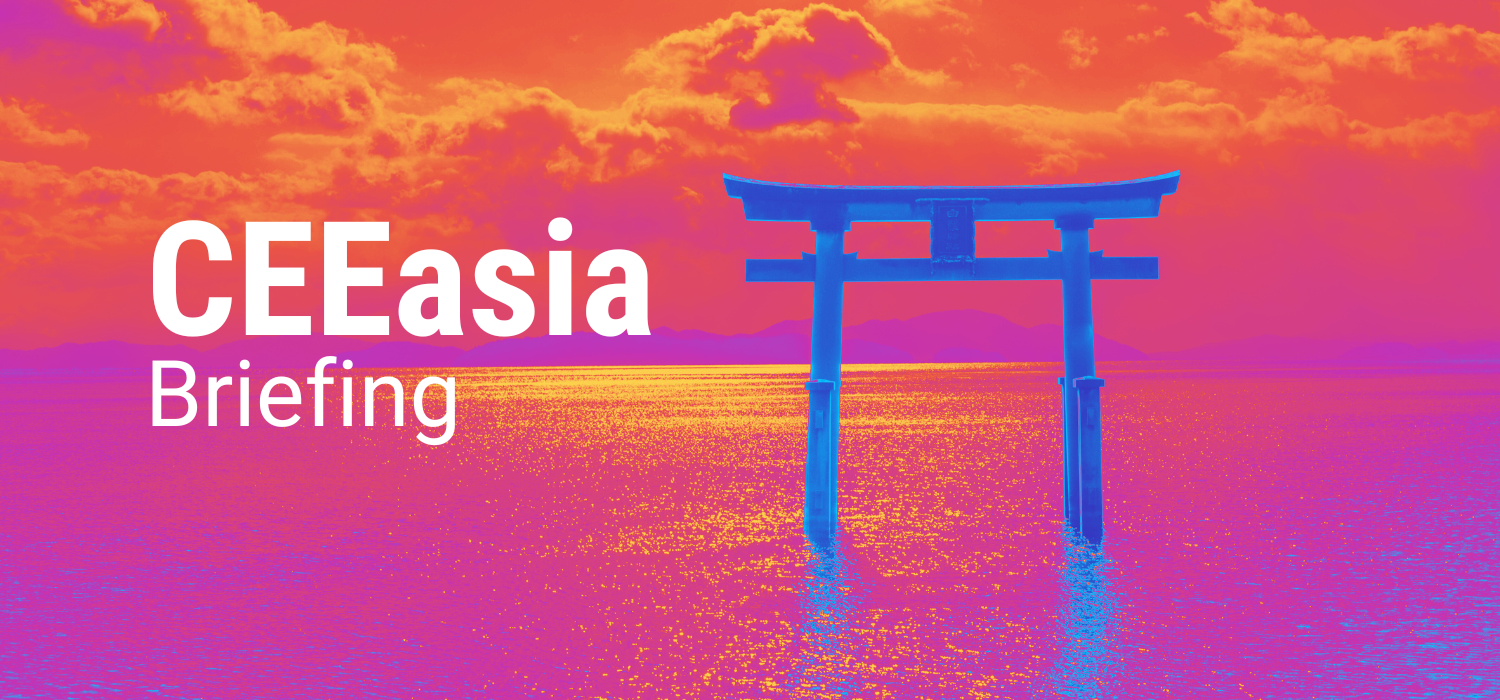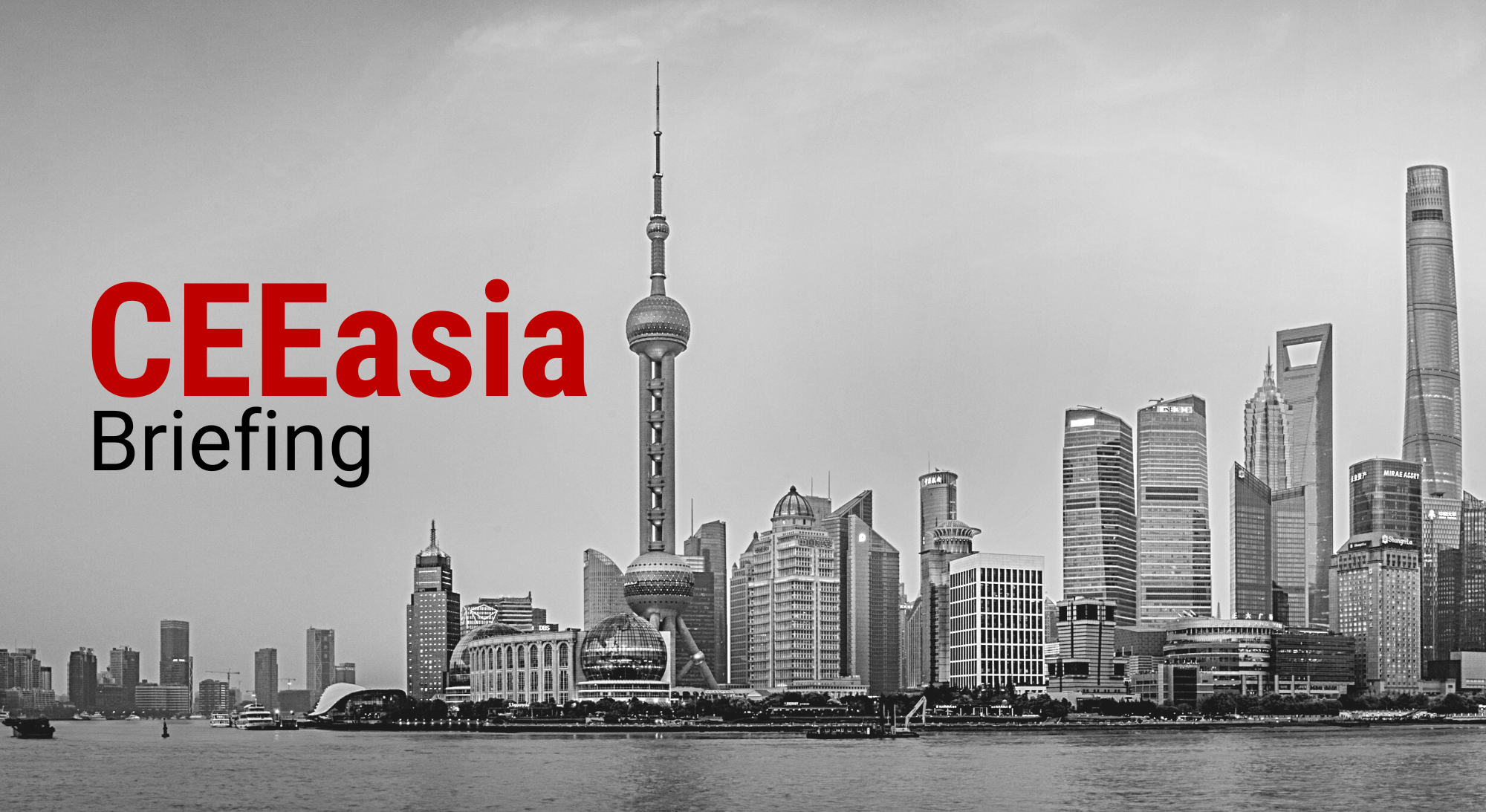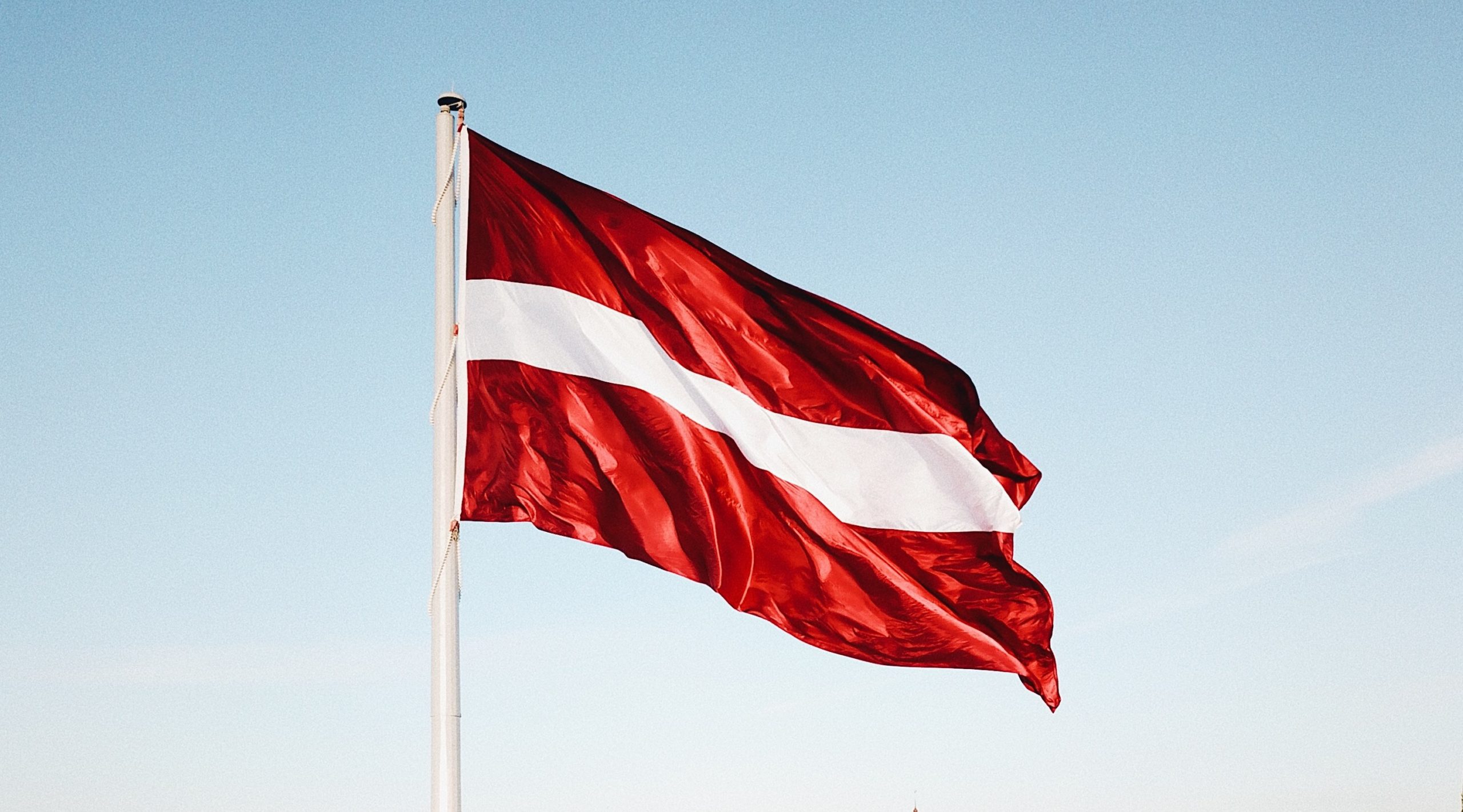Welcome to the 43rd issue of the #CEEasia Briefing.
In this issue, we dissect the following topics:
- Germany’s China strategy
- Taiwanese-Dutch cybersecurity cooperation
- NATO signs ITTPs with South Korea and Japan
- EU criticizes India over human rights abuses
Do you need to know more about East Asia? Don’t hesitate to shoot us a message about custom analysis tailored to your needs.
1. Germany’s first official China strategy
What’s going on? The German government is now moving ahead with the publication of its strategy towards China. The strategy indicates a shift toward broader geopolitical thinking in Berlin, as it no longer overlooks issues such as human rights abuses in China. This comes despite the fact that China has been Germany’s largest trading partner for seven years and a crucial market for major German companies like Volkswagen or BASF. It seems to be the case, however, that the EU’s most robust economy wants to lead by example and has thus adjusted its position on China in a way that seeks to strengthen (rather than weaken) a unified EU policy.
Going deeper… The document signifies a major change in Berlin’s position on China, aligning it more closely with the European Commission’s growing skepticism. The step is welcomed as Germany has long been seen as less consistent in pursuing a unified European policy. Given the high interconnectedness of their markets, Germany is not aiming for a complete decoupling from Beijing. But it seems keen to broaden the portfolio of its partners for technological cooperation globally by considering security and human rights concerns. Specifically, the strategy aims to identify vulnerabilities, alert German companies to the risks of conducting business in China, and clarify that Berlin will not bail them out if they run into trouble.
This means… Since coming to power, Scholz has done little that would suggest that Germany will move away from its established tendency to prioritize trade when dealing with states like China and Russia. In a signs of this, German officials and trade delegation both visited Beijing shortly after the Chinese President Xi Jinping further tightened his power at the CCP’s 20th congress last year. And Scholz has also supported a controversial deal and a minority stake by Chinese shipping giant CISCO in the Port of Hamburg, that national cybersecurity agency later classified as critical infrastructure.
That said… Despite the criticism, Germany’s new risk reduction policy in strategic areas has already been quietly put into practice. One example is how the mechanism for controlling incoming Chinese investment reflects a risk assessment for the private sector. Washington has also welcomed Berlin’s new geostrategic stance on China, as it signals greater scope for transatlantic coordination with the EU and the creation of cooperation platforms such as the EU-US Trade and Technology Council, which may pay dividends in limiting the adverse effects in the economic and technological rivalry with China.
2. Taiwanese-Dutch cybersecurity cooperation
What’s going on? The Dutch House of Representatives have passed two motions in support of Taiwan, one calling for deepening Dutch-Taiwanese cooperation in cybersecurity, and the other for preventive measures to dissuade China from a major cross-Strait contingency. The move follows a series of other motions passed in favor of Taiwan by the Dutch parliament in 2021 and 2022.
Going deeper… The potential cooperation in cybersecurity is of particular relevance for both sides. There are several existing frameworks that could be utilized as a platform for exchange of information (such as the Global Cooperation and Training Framework). Considering China’s long-established use of cyber attacks, disinformation operations and other information warfare tactics against Taiwan, the island nation has developed a significant expertise in the area of cybersecurity. Taiwan has also been trying to strengthen its existing and establish new security partnerships with its unofficial allies. In addition to cybersecurity, negotiations about potential Czech-Taiwanese cooperation in the development of military drone technology is another area of security-related cooperation that is of particular interest to Taiwan.
This means… Taiwan has long been expanding its security-related cooperation with the US and other Indo-Pacific allies, with the DPP presidential candidate Lai Ching-te calling for further expansion of these ties (e.g. through a direct security dialogue mechanism with Japan). More recently, Taiwan’s warming relations with CEE have been increasingly including the topic of security as a talking point between the dignitaries from both sides.
3. NATO signs ITPPs with Japan and South Korea
What’s going on? On the sidelines of the 2023 NATO Summit in Vilnius, Japanese Prime Minister Fumio Kishida and South Korean President Yoon Suk Yeol signed so-called Individually Tailored Partnership Programs (ITPPs) with NATO. Similar agreements were concluded with Australia and New Zealand. The documents focus on cybersecurity, new technologies, arms control, climate change, and interoperability. They are the latest sign of NATO’s increasing engagement with the Indo-Pacific region, which have been criticized by China, and partially also by French President Emmanuel Macron.
More about ITPPs… The freshly concluded ITPPs build up on the Individual Partnership and Cooperation Programmes (IPCPs). South Korea established an IPCP with NATO in 2012, while Japan signed its own IPCP two years later, in 2014. As opposed to the IPCPs, the new format is supposed to be more systematic, since the documents not only list areas of cooperation, but also set goals, key objectives, and milestones for individual projects. Both ITPPs have overlapping focus areas: counterterrorism, arms reduction and non-proliferation, emerging and disruptive technologies, cybersecurity, science and technology, and interoperability. The arrangement with Japan, however, also includes maritime security, and it newly introduced space security into the cooperation.
This means… According to NATO Secretary-General Jens Stoltenberg, “[security] is not regional, security is global.” Therefore, the rapprochement with East Asian partners. However, French President Emmanuel Macron says, based on the North Atlantic treaty, East Asia is outside of NATO’s geographical reach. NATO should refrain from opening its office in Japan to avoid signaling possible interference in the Indo-Pacific. Indeed, China has long criticized NATO’s increasing engagement with the region, stating that Asian countries “don’t want a replica of bloc confrontation in Asia.”
4. European Parliament criticizes India over human rights
What’s going on? The European Parliament has adopted a resolution raising concerns over the human rights situation in India, especially in the context of recent ethnic violence in the northeastern state of Manipur. EP also criticizes national and state governments (both run by the Bharatiya Janata Party – BJP) over its nationalist rhetoric and shrinking civil society space. The Indian Ministry of Foreign Affairs responded, unsurprisingly, by stating that the situation in Manipur is a strictly internal matter and such interference from the EU shows signs of a “colonial mindset”.
Going deeper… In Manipur, roughly 53% of population is composed of the Meitei people, which are settled in the valley and are mostly Hindu. Another 16% is represented by Kukis residing mainly in the surrounding hills, practicing Christianity. The Kukis enjoy legal status of the “Scheduled Tribe” (ST) and the benefits implied; land rights, government, university and other quotas. Meiteis, on the other hand, hold the political power in the state government, with currently secured two thirds of the seats in Manipur’s Assembly. Although the tensions in Manipur are historical and recurring, the most recent clashes were sparked after Meiteis raised demands for ST status to state’s authorities. And given the BJP’s right-wing nature and government’s records on minorities’ crackdowns, many actors have raised concerns over BJP’s management of the Manipur crisis, that includes igniting communal hate, shutting the internet or imposing curfews.
This means… The resolution was taken up just a day before Narendra Modi’s two-day visit to Paris during the national Bastille Day, to which he was invited by the president Macron as a guest of honor. Despite EP’s criticism and calls on India to better protect its minorities, the transatlantic bloc pursues cooperation with Delhi (with defense trade in the spotlight), as the latter presents a key ally in the Indo-pacific and global politics to counter China. It thus remains to be seen whether the EU will take more resolute steps or turn a blind eye on human rights mistreatment in the world’s “biggest democracy”. India’s strategic importance and willingness to strengthen partnerships across the board might eventually give Delhi an upper hand over the EU’s objections.
Quick takes on CEEasia developments
TAIWAN | A Taiwanese tennis player Hsieh Su-wei, along with Czech partner Barbora Strýcová, secured their second Wimbledon doubles title after defeating the duo of Storm Hunter and Elise Mertens 7-5, 6-4. This victory marks Hsieh’s fourth doubles title in total.
CHINA | China-based Contemporary Amperex Technology Co. Limited (CATL) is cutting down on its investment of €7.3 billion in the Hungarian city of Debrecen. The company applied to the Government Office of Hajdú-Bihar County for permission to reduce the original size of the planned battery plant from 277,2 to 240,4 thousand square meters (down by 13% on area and additional 34% on emissions).
CHINA | Swedish fast fashion brand H&M has filed a lawsuit against its Chinese competitor Shein for copying its designs. The lawsuit comes only a few weeks after a similar lawsuit was filed against Shein by a group of independent designers, and amidst allegations of forced labor in its Xinjiang factories, all of which is further entrenching the negative image of the brand.
JAPAN | Senior Ukrainian police officers participated in a specialized training program held in Tokyo, aimed at gaining insights from Japan’s expertise in identifying war dead, conducting mass autopsies, collecting specimens, and performing DNA analysis.







